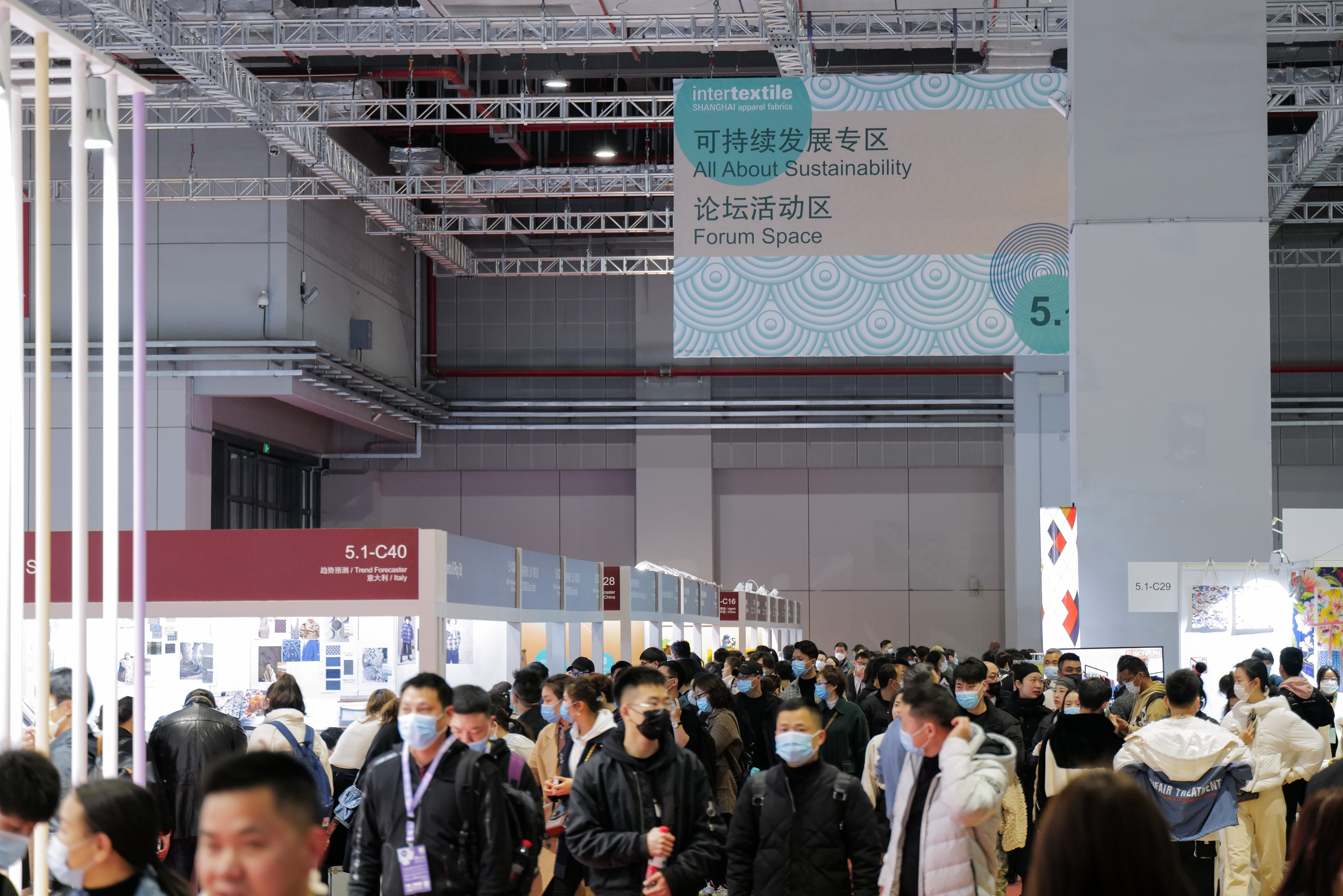
The fair hosted nearly 2,600 exhibitors from 17 countries and regions, and the Japan Pavilion was one of the most popular zones, regularly crowded with visitors enquiring about quality sustainable products. Toyoshima showcased a range of innovations including products made from biodegradable corn fibre as well as its Food Textile series that reutilises food waste products as dye. "Our purpose joining Intertextile is to promote our products, attract customers and facilitate business deals, and all of these expectations have been met. The fair is forward-looking and promotes the communication and progress of the industry,” said Ms Xiaoli Pan, Dept 3 Supervisor of Toyoshima International (Shanghai) Co Ltd, who also noted that “export orders have returned.”
Meanwhile, Turkish brand ORTA focuses on one specific sustainable material – hemp. "Hemp can grow four times a year, whereas cotton can only grow two times a year. It also saves more water during the production stage and naturally has anti-bacterial properties, which is what makes it a globally popular product right now,” explained Mr Jackal Tsang, Regional Sales of Orta Anadolu. “Over the past year, we have become more focused on the domestic scene because the market in China picked up quite quickly after the COVID-19 disruptions last year. Intertextile provides the ideal platform for us to meet our existing and potential customers in China, face-to-face. We have met with many big local brands as well as more e-commerce brands at the fair this year, so we are optimistic about the market for the coming year.”
Italy-based Ratti SpA also believes there is great potential in China and a real growing consumer demand for luxury brands that use their high-quality fabrics, according to the company’s Asia Sales Manager, Ms Elisa Ravera. “China has recovered well from the pandemic and so presents us with a lot of potential for business here. At the moment, we are investing in sustainable products such as organic and natural fabrics.”
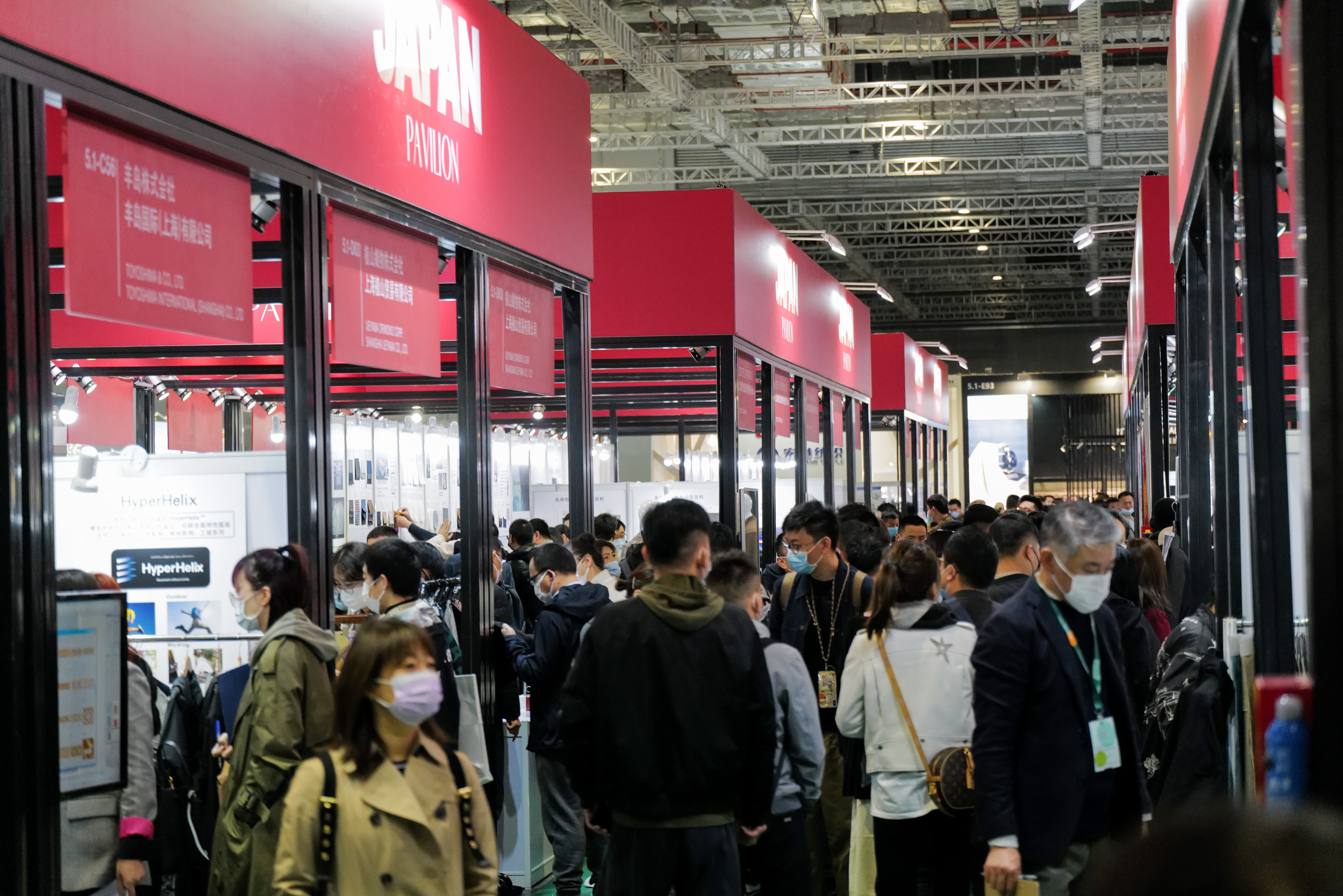
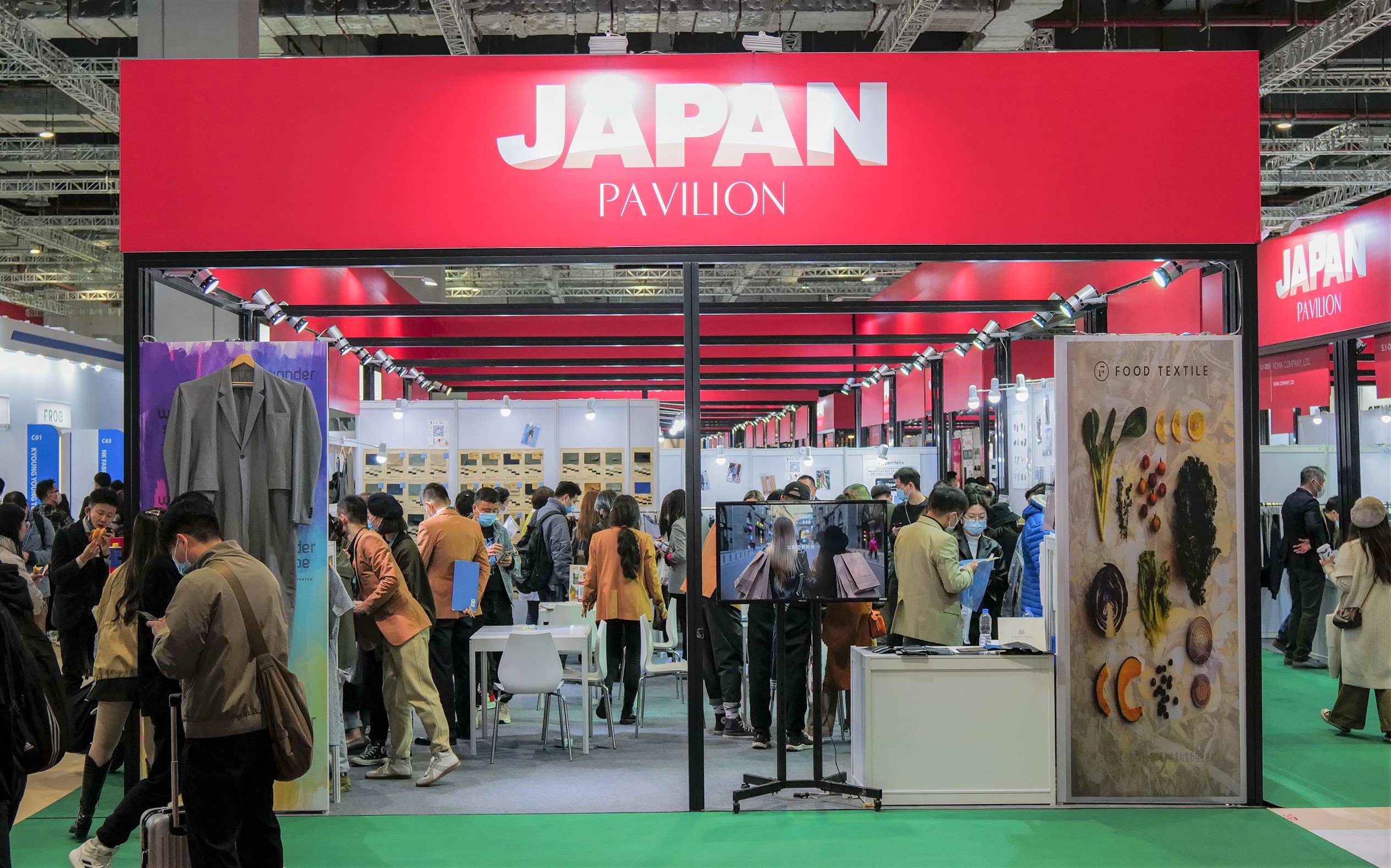

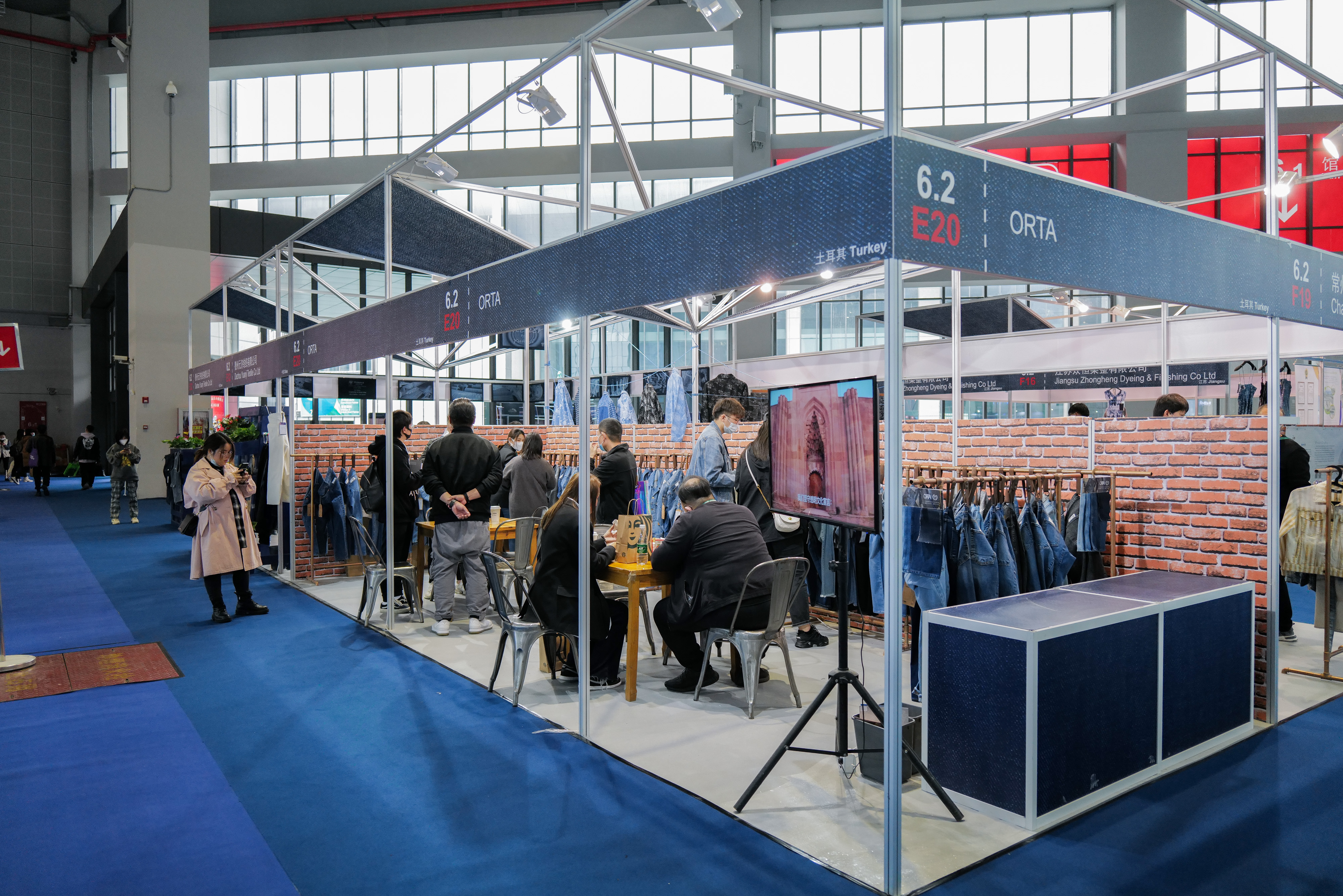
Sustainability recognised as the future direction of China’s textile industry
At Intertextile Apparel’s Spring Edition, visitors were looking specifically for sustainable products. Ms Fiona Qian, Procurement Specialist at Tongxiang Huiquan Garments Co Ltd, China said she was looking for “some regenerated, environmentally friendly fabrics, as well as synthetic fibres and wool yarns such as Lyocell and Modal”.
Mr Rongfei Hu, Head of Fabric Development, EP Yaying Fashion Group Co Ltd, China paid a special visit to Mitsubishi Chemical’s booth at Intertextile. "Mitsubishi Chemical is a supplier that we value and have been cooperating with. Their Soalon triacetate fibre is environmentally friendly and recyclable, which is in line with the environmental protection concept our brand is promoting to our consumers,” he explained. “From international brands to domestic women’s clothing brands, environmental protection is considered by everyone, for example raw materials that are made with renewable elements. Many exhibitors have introduced new ideas at their booths, which is nice for providing guidance to brands like us to adjust our development direction.”
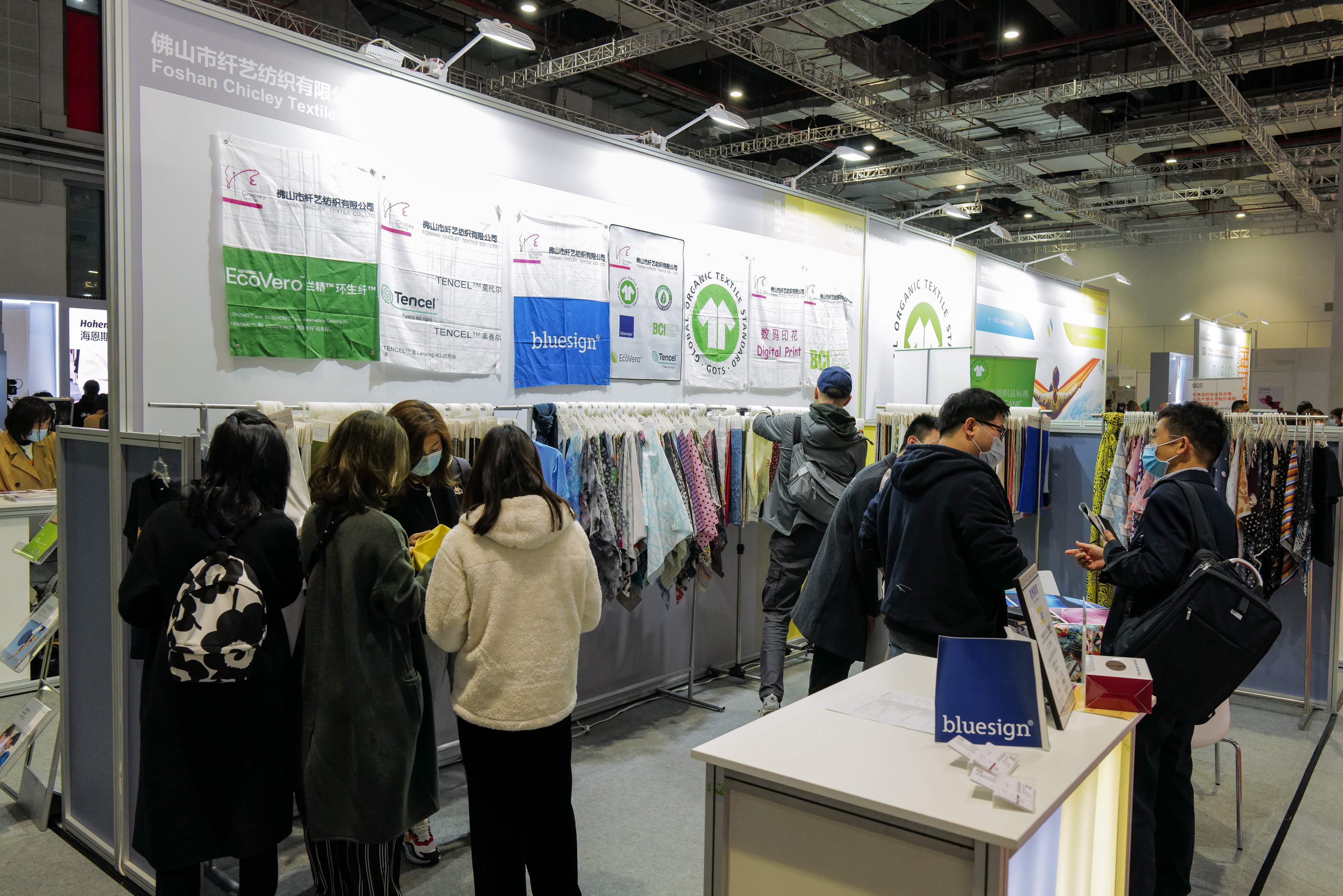
Visitors were also surprised by what they could find at the fair’s new Hybrid Showcase display area, where overseas exhibitors sent their products to be displayed onsite for visitors to touch and feel. "I discovered a high-quality fibre supplier, Sateri. I’m very interested in their sustainable and environmentally friendly Lyocell and EcoCosy fabrics,” exclaimed Ms May Wu, Fabric Purchaser at CPAX Ltd, China. “As the textile industry is currently paying more attention to regenerated, natural, eco-friendly and protective products, I also observed that more suppliers are beginning to invest in sustainable products. I think these trends are bound to be the future direction of China’s market and the global industry.”
"I very much agree that Intertextile uses its strong influence to bring the industry together and promote its progress. Here at the fair, I can clearly feel that the entire market is paying more attention to sustainable and functional fabrics, with a desire to return to nature and to have a more comfortable, skin-friendly experience,” observed Ms Bella Lin, Designer at CGC (Shanghai) Corporation, China.
Fringe programme covers latest applications, sustainable fashion and circular economy
Providing key insights on developments in the textile industry, Intertextile’s comprehensive fringe programme featured several seminars and themed forums about sustainability. Eastman Chemical Company from the US introduced their new circular solution – Naia™ Renew portfolio, including details about the applications of the fibre which is traceable with certified biodegradability.
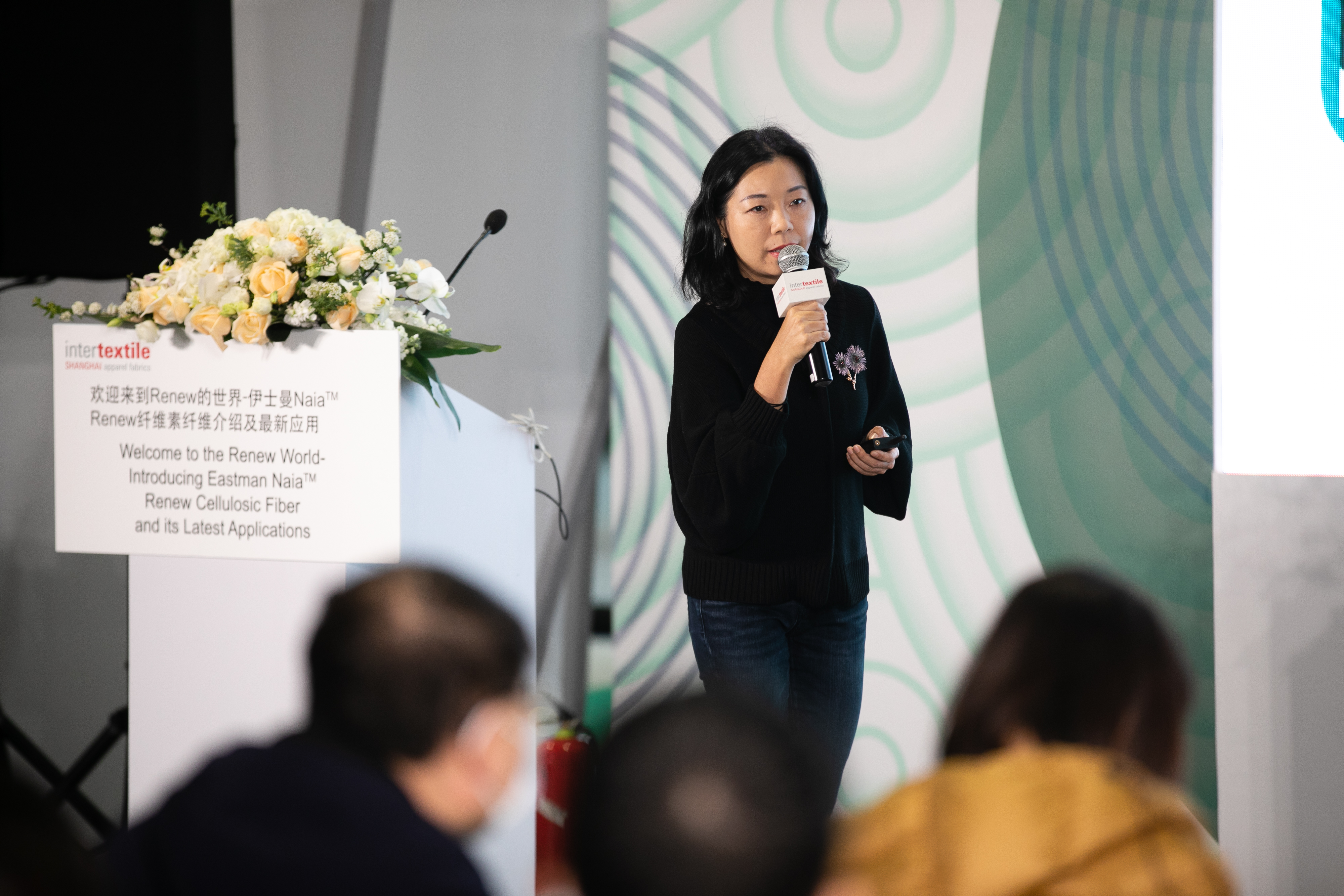
"Our company makes sweaters and we cooperate with Eastman on raw materials, so I joined their seminar at the fair. The presenter introduced their new recycling solution and this kind of information is exactly what we are trying to understand. The content of the seminar is extremely important for our business,” shared one of the audience, Ms Merry Yang, Deputy General Manager, Yarn & Suzhou Office, Neo-Concept (Holdings) Co Ltd. “I think that in the future, the development of fabrics will lead to more environmentally friendly materials to save costs and protect the environment, and promote sustainable development of the fashion industry at the same time.”
Meanwhile, Impact Hub Shanghai moderated a forum about material selection in fashion products and their impact on the industry, including factors associated with consumer behaviour. Ms Karen Du, who is the Director of Sustainable Fashion, Impact Hub Shanghai as well as Managing Director of R.I.S.E. Sustainable Fashion Lab, hoped to gauge the level of awareness for sustainable fashion in the Chinese market through presenting at the fair.
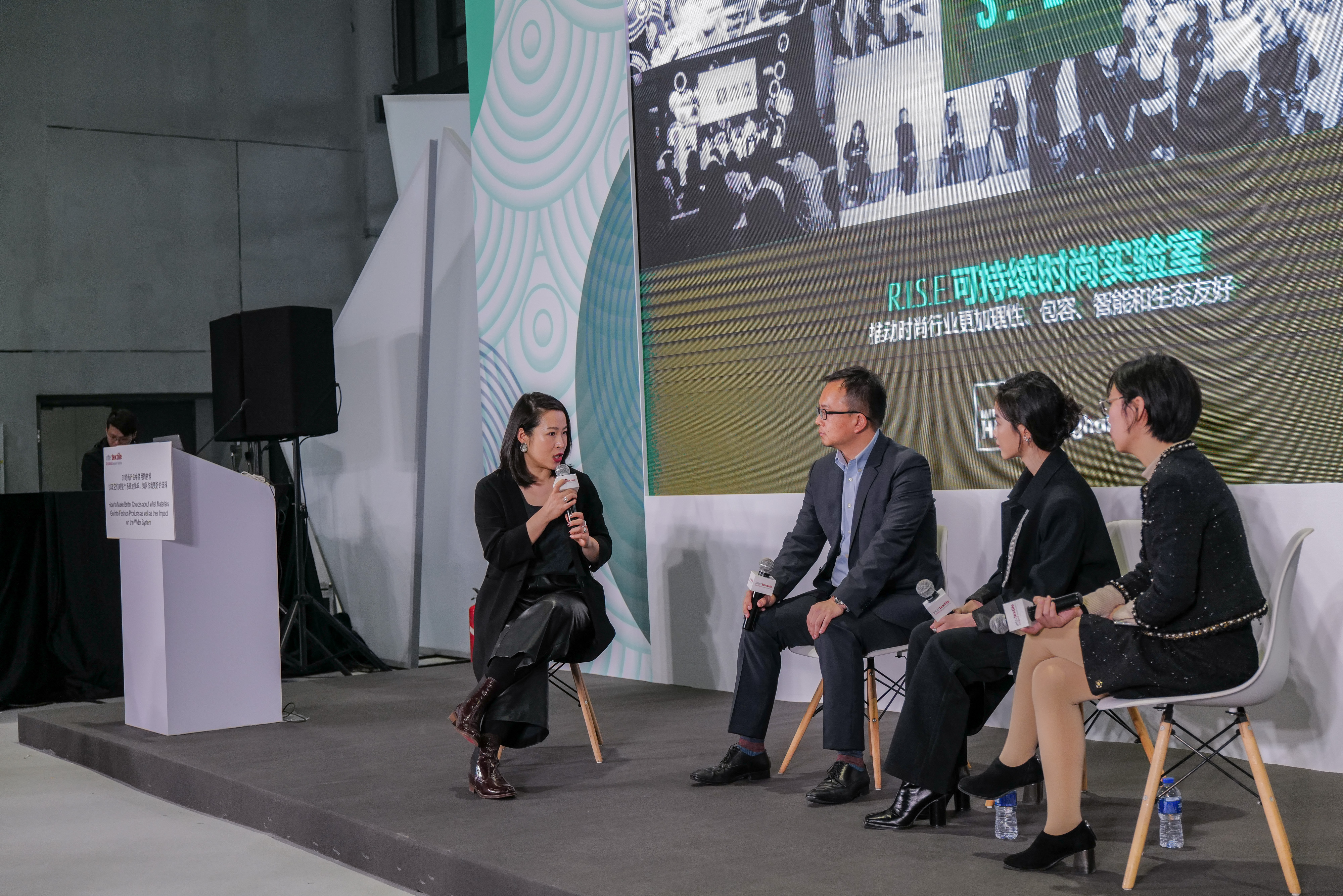
"This time when visiting the fair, along with the previous few times, I clearly feel that the booths at Intertextile have become more and more ‘green’, which is great!” commented Ms Du. “When the pandemic first broke out, everyone was speculating whether there would be retaliatory consumption afterwards, but this did not happen. Consumers are becoming more rational about this. After the pandemic, this may become the new normal and people will reflect more on their relationship with the society, which is a very obvious trend for the promotion of sustainable fashion.”
According to a research published by the R.I.S.E. Sustainable Fashion Lab in October 2020, Chinese consumers have a sense of ‘moral anxiety’ and fear that their purchase and consumption would have an adverse impact on aggravating environmental issues – around 85% consumers surveyed said they will not purchase from brands with negative environmental news.
"We are a home brand about sustainable fashion. In fact, we have been following R.I.S.E. and Impact Hub for a long time. After seeing their promotion, I attended this forum and got some useful information,” said Mr Tony Zhang, Chief Operating Officer of Another Mars, a company that promotes Nepali handcrafted traditions.
For the latest development of sustainability in the Chinese apparel market, don’t miss out on the upcoming Autumn Edition of Intertextile Apparel, which will be held from 25 – 27 August at the National Exhibition and Convention Center (Shanghai) alongside Intertextile Shanghai Home Textiles – Autumn Edition, Yarn Expo Autumn, CHIC and PH Value. International exhibitors and buyers are welcomed to join the fair with the Hybrid Exhibition Package or via the online business matching platform, webinars, livestreams and more.
The fair is co-organised by Messe Frankfurt (HK) Ltd; the Sub-Council of Textile Industry, CCPIT; and the China Textile Information Centre. For more details, please visit: www.intertextileapparel.com. Information from the international textiles sector and Messe Frankfurt’s textile fairs worldwide can be found at: www.texpertise-network.com.